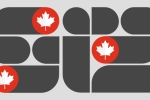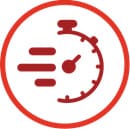
Operational excellence is the foundation for an organizational transformation that unlocks full business value by understanding what customers want and driving internal efficiencies to meet those expectations.
It’s a structured tactic that aligns the management of people, processes and assets with key metrics and strategic objectives. It allows utilities to provide their workforce with the tools and information necessary to deliver the experience customers want—while creating an innovative culture that empowers the team to find new and more meaningful ways to meet customer needs.
By aligning all teams in the organization behind the key metrics that matter, utility companies can put systems in place that empower their teams to solve issues before they happen.
An integrated approach
- Front-line leadership
- Workforce mobilization
- Embracing innovation
Front-line leadership
The biggest barrier to achieving operational excellence is getting teams at all levels to recognize and understand why the organization needs to improve. Empowering front-line teams helps employees understand how their role impacts value, helping them provide more reliable and responsive service. Unlocking full people potential means changing the way managers work, enhancing people practices and empowering front-line teams to improve the work.
Workforce mobilization
New technologies and innovative methods continue to impact all industries by feeding customer expectations with more agile experiences. Utilities need to use digital initiatives to provide simpler and more engaging solutions—and workforce mobilization centres around those concepts: mobility, strategy and transformation. Unlocking people potential is one thing, but to deliver operational excellence fully, organizations must also embrace data analytics, mobile strategy and digital transformation. See how one of our clients transformed their meter replacement process by digitizing and mobilizing their workforce.
Embracing innovation
As digitization becomes the norm, organizations must embrace a digital mindset around their operations. Looking for disruptive ways to solve problems and improve efficiencies should be embedded in the journey towards operational excellence. But this doesn’t mean organizations should implement digital for the sake of digital. Sometimes complementing current traditional tools with innovative thinking may be enough to solve those problems.
Operational excellence is about making sure you have the systems in place and the tools and information available so your teams can react quickly to the problems that matter. With a successful operational excellence strategy, you're continuously pursuing the removal of waste and helping your organization keep costs and rates as low and competitive as possible. It means less failure in processes and a more reliable, responsive performance.
Operational excellence is no longer an option—it’s a must for utility companies. Developing a strategy that aligns people, processes and assets will make sure you have a clear understanding of your organization’s goals and the confidence to get there fast, creating an accelerated path to turning your company’s operational vision into a reality.
With a successful operational excellence strategy, you're continuously pursuing the removal of waste and helping your organization keep costs and rates as low and competitive as possible. It means less failure in processes and a more reliable, responsive performance.

Automated work processing
A notification for a meter replacement is automatically updated in the company’s enterprise resource planning software. This creates a work order and sends the information to the scheduling system, giving clear visibility of material demand with built-in electronic ordering from the warehouse.


Automated scheduling
With consolidation of all fieldwork in a single system, a work order is sent for automatic, optimized scheduling based on the business rules and route optimization.


Electronic notifications
The fieldworker receives the work order for the meter change electronically on a ruggedized tablet that’s connected to the utility’s back-office systems.


Work completion
The fieldworker provides real-time work status updates about the meter change from the job site.


Work adjustments
Real-time field updates enable work planners to make real-time adjustments to the work schedule and personnel assignment.


Data capture
The fieldworker delivers timely, accurate capture of the relevant information on the ruggedized tablet. This includes information like the new meter’s serial number and a reading of the old meter.


Work closure
Work closures and productivity metrics are 90% automated, meaning minimal manual data processing is needed by back-office staff.


Follow-up requests
Fieldworkers are able to raise a notification on the tablet if follow-up work is needed on or near the site. The notification is automatically created when the user syncs their tablet, which can then be reviewed for future action.

Contact us

National Energy, Utilities, Mining and Industrial Manufacturing & Automotive Consulting Leader, PwC Canada
Tel: +1 416 687 8522

Vice-Chair and Managing Partner, Quebec & Eastern Canada Region, PwC Canada
Tel: +1 514 205 5199































